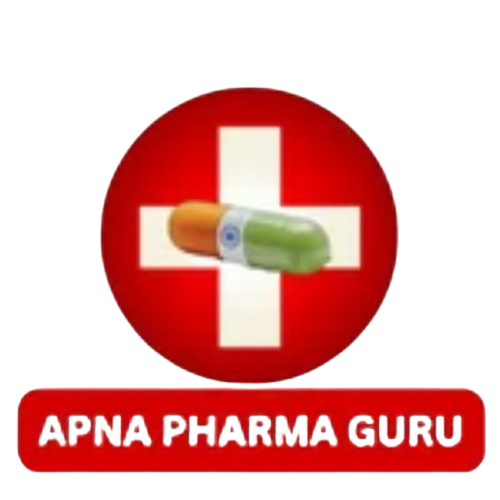Strategy in Pharmaceutical Industry ?
Predicting the Future:
The pharma industry is rife with uncertainties. Strategic planning helps companies anticipate market shifts and adjust their course accordingly. Optimizing Resources: With limited resources, companies need to prioritize projects that align with their long-term vision and offer the best ROI.
There are only five business strategies: cost, quality, distribution, technology, and intellectual property (IP).
All business strategies break down into these five, or some combination of them. As a general principle, focusing your organization on one is the easiest to execute.
Types of strategy for you to review:
-Business strategy. A business strategy typically defines how a company intends to compete in the market.
-Operational strategy. Operational strategies focus on a company’s employees and management team.
-Transformational strategy.
-Functional strategy.
SWOT analysis in pharmaceutical industry?
SWOT analysis is a strategic planning tool used to evaluate the Strengths, Weaknesses, Opportunities, and Threats of a business or organization.
It helps businesses to identify and understand their internal and external factors that can impact their success.
A SWOT analysis and the BCG Matrix are both strategic management tools used to analyze a company’s position in the market. However, they differ in their focus and approach.
A SWOT analysis is a framework for identifying a company’s strengths, weaknesses, opportunities, and threats.
Technical Skills?
Technical skills are the specialized knowledge and expertise required to perform specific tasks and use specific tools and programs in real world situations.
Diverse technical skills are required in just about every field and industry, from IT and business administration to health care and education.
How can we improve our pharma technical skills?
-Taking continuing education courses.
-Read pharmacy journals.
-Attend conferences and seminars.
-Use online resources.
-Shadow a more experienced pharmacist.
What type of technical skills do you need for Pharmaceutical Industries?
-To work in clinical pharmaceutical science.
-Effective communication.
to be good at working in a team.
-To be confident with technology, systems and processes.
-An interest in science and technology, a good academic background and an ability to update and test your knowledge against experience.
-adhere with GxP environment,SOP , company directives and with company policy .
Vomprehensive guide to the essential skills for thriving in Pharmaceutical Industries
- Technical Proficiency in Relevant Scientific Areas
A strong foundation in life sciences (biology, chemistry, biochemistry, etc.) is crucial. Additionally, specialized knowledge in areas like genomics, proteomics, pharmacology, or bioinformatics can set you apart. Keep abreast of the latest scientific techniques and technologies used in research and development, such as CRISPR, next-generation sequencing, or bioprocessing. - Analytical and Problem-Solving Skills
The ability to analyze complex data sets, identify patterns, and solve intricate problems is invaluable in biotech and pharma.
This includes not only interpreting experimental or clinical data but also applying this information to design new experiments, troubleshoot issues, and innovate solutions.
3.Regulatory Knowledge
Understanding the regulatory environment is critical, as it influences every stage of drug development and commercialization.
Familiarize yourself with the processes for clinical trials, drug approval, and compliance with regulations set by bodies like the FDA (U.S. Food and Drug Administration) and EMA (European Medicines Agency).
4.Project Management Abilities
Projects in the biotech and pharma sectors often involve cross-functional teams and require careful coordination of resources, timelines, and objectives.
Skills in project management, including planning, execution, monitoring, and communication, are essential for ensuring projects stay on track and meet their goals.
5.Communication and Interpersonal Skills
Effective communication is key in these collaborative industries.
This includes the ability to clearly convey complex scientific concepts to varied audiences, including colleagues, regulatory agencies, and non-scientists.
Strong interpersonal skills also facilitate teamwork, networking, and leadership opportunities.
6.Adaptability and Flexibility
The fast-paced nature of biotech and pharma means that projects, technologies, and priorities can change quickly.
Being adaptable and open to learning new skills or pivoting to new areas of work is vital for staying relevant and contributing effectively.
7.Business Acumen
Even in primarily scientific roles, an understanding of the business side of biotech and pharma can be highly beneficial.
This includes knowledge of market analysis, product development strategies, and the economic factors influencing the industry.
Consider taking courses or workshops on business principles relevant to biotech and pharma.
8.Ethical Judgment and Integrity
The work in biotech and pharma has profound implications for human health and the environment.
A strong sense of ethics, integrity, and a commitment to doing what is right are paramount.
This includes adhering to ethical research practices, regulatory standards, and being transparent in your work.
9.Teamwork and Collaboration
Successful outcomes in biotech and pharma often depend on the ability to work well in teams.
This means not only being a cooperative and supportive team member but also understanding how to leverage diverse skill sets, cultures, and perspectives to achieve common goals.
10.Resilience and Perseverance
Finally, resilience and perseverance are crucial. The path from discovery to market is long and fraught with challenges.
The ability to stay motivated and continue pushing forward, even when faced with setbacks, is essential for making meaningful contributions to the field.
